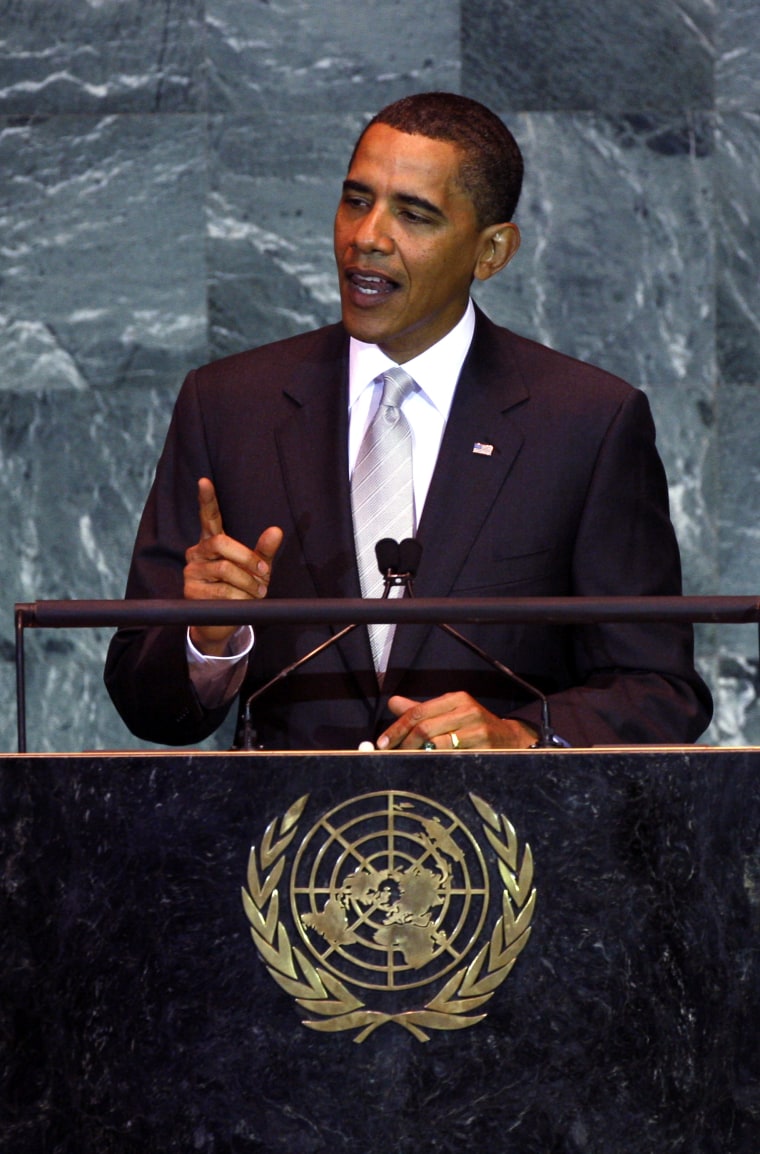Responsibility without authority is a recipe for frustration. But popularity without power is a recipe for aggravation.
Consider Barack Obama, 44th President of the United States, a man who, by dint of his title, is deemed by the great majority of the population to have "responsibility" for the economy.
To any intelligent person, the notion of one man having "responsibility" over an economy the size of America's is a joke; and yet, a stunningly large percentage of the population will, nevertheless, grade Obama's performance as President largely on the basis of the performance of the economy over the coming months and years.
Consequently, and not surprisingly, Obama is frustrated — he realizes he will get blame (or credit) for events largely beyond his control.
But, in this, he is not alone — the same standard has been applied to every President before him. So, while he may be frustrated by the situation, he cannot claim unfair treatment.
Popularity without power, though ... that's a bird of a different feather.
Obama is, after all, a man who won the presidency largely on the basis of the electorate's judgment about his personality — he was seen as bright, and personable, and engaging, which was not surprising, because he is bright, and personable, and engaging. He was, for all intents and purposes, a Rorschach ink blot test for the body politic — individual voters saw in him whatever it was they wanted to see in him, reflected back to them.
He was so popular, in fact, that he became only the fourth Democratic President in the last century and a half to win an outright majority of the popular vote — something Woodrow Wilson, and Harry Truman, and Bill Clinton, and even the sainted John Kennedy failed to accomplish.
Imagine, then, how frustrating it must be for him to be that popular, but not to be able to enact either his legislative or his political agenda; to know that, among the public, he has a deep reservoir of goodwill, but to know that for his ends, it is all but worthless.
It is as if he had been informed he had won the lottery, and sacks and sacks of currency had been delivered to him — but upon closer inspection, he had realized the currency was Confederate Greenbacks, useless for anything other than decoration.
Even before he was sworn in, two home-state Democrats — disgraced-but-not-yet-indicted then-Gov. Rod Blagojevich and the embarrassing never-was Roland W. Burris — conspired to humiliate Obama by filling his old Senate seat against his wishes. And even after Obama made clear through his aides that he wanted Burris to resign the seat, Burris refused to bend to Obama's will — and today Burris still sits in Obama's old seat, trying to decide whether he wants to change his mind and run for a full term on his own.
Burris's act of resistance was but a harbinger of the powerlessness to come.
In Pennsylvania, sophomore Democrat Rep. Joe Sestak decided not to take turncoat Democrat Arlen Specter's party-switch-in-search-of-reelection lying down, and resisted calls for a clear field for Specter.
In Colorado, state house Speaker Andrew Romanoff wasn't fazed by Obama's endorsement of appointed incumbent Sen. Michael Bennet, and continues his primary challenge.
Through August and the first half of September, Obama was unable to turn back the mounting opposition to his plans for health insurance reform. Even after more than 100 solo interviews — almost three times as many as his two immediate predecessors had conducted by this point in their presidencies — he still felt a need this weekend to do a "full Ginsburg" and appear on five Sunday morning talk shows to push his ideas for reform.
And then came this weekend's latest illustration of the President's powerlessness — New York Gov. David Paterson's refusal to bow, kiss the ring, and remove himself from his 2010 campaign for a full term as Governor of the Empire State, despite Obama's having made clear — through Rep. Greg Meeks, a close Paterson ally — that he wants Paterson to find something else to do next year.
What makes the Paterson case so interesting is that, at least at first glance, it appears that Obama misfired, and shot at the wrong northeastern liberal Democrat Governor — that is, he fired at Paterson in New York, when he should have fired at Jon Corzine in New Jersey. Corzine's numbers are worse than Paterson's, and Corzine is up for reelection in 43 days.
So why, if Obama is really concerned about the prospect of losing a Democratic governor, did he choose to fire at Paterson, and not Corzine?
Because Obama knows Corzine's answer would have been the same as General McAuliffe's at Bastogne: "Nuts!"
Mel Brooks said, "it's good to be the King." I'm betting Obama would give anything for a taste of that kind of power.
